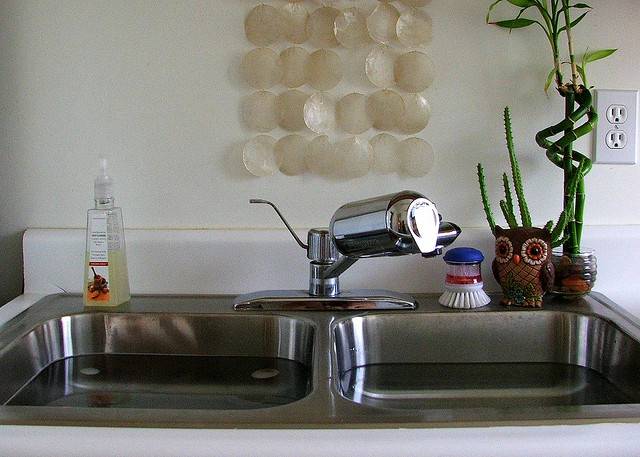1. Start Fresh and Clean
Starting with a clean kitchen is a time saver. If you already have spills on the counter and dishes piled up in the sink, you won’t really be in the mood to cook a fresh meal. Make time to deep clean your kitchen one day, so you won’t have to clean as much every time you use it.
2. Pick the Right Spot
Where is the best place to cook? Do you have an island in your kitchen, so you have unobstructed counter space to prepare everything before turning around and dumping it in a pan? Or it might make sense to slice and dice right next to the sink, so you can clean the fresh produce as you go. Pick the right spot so you’ll be running around less. Don’t prep half of the meal on one side of the kitchen just to have to run it across the room to the stovetop. Prepping next to your workspace will also cut down on spills you’ll have to clean up later.
3. Cook Simpler Meals
You might fancy yourself a gourmet cook, but are you trying to make a masterpiece or feed your family? If you’re just trying to fill everyone’s bellies, don’t worry so much about the appetizer, main course, and three sides. Cook enough food so no one walks away hungry, but don’t worry about going all out for the dinner. Simple meals are just as filling as anything gourmet!
4. Prep Ahead of Time
If you can fix any part of your meal ahead of time–do it! Bake bread in the morning while you’re packing lunches, or dice vegetables while the kids are having their snacks. Use a slow cooker to make your meat extra tender while you’re at work all day.
5. Try Canned, Frozen, and Dry Ingredients
Of course you want the best fresh ingredients for your family, but that’s not always possible–or affordable! Don’t be afraid to try canned, frozen, and dry ingredients. These also work to cut down on your prep time. Using frozen chopped spinach is way easier than washing fresh leaves and cutting them up yourself. Use dry mixes instead of trying to toss together all the spices by yourself. The meal will taste just as good, and you won’t be too exhausted to enjoy it!
6. Use Fewer Dishes and Utensils
Plan ahead so that you can use fewer dishes and utensils, which means you’ll have less to wash later. If you use a cutting board to cut the onion, rinse it and the knife to use again when cutting the chicken while the onions are already simmering. If you’re preparing a lot of similar ingredients, see if you can mix them all together in the same bowl without even washing it in between.
7. Collect Trash As You Go
When you take something out of the package, go ahead and put it in the trash can or recycling bin. This will be easier than trying to run around picking up trash after the meal, and it will make your cooking space look bigger and less cluttered. Throwing out trash as you go can help cut down on spills as some ingredients or packaging might start oozing over time.
8. Clean Spills Immediately
Don’t let spills sit! They’ll get sticky and stinky and before you know it, you’ve put a clean bowl right on top of a mess. Wipe a spill up as soon as you see it happen so you won’t have to deal with a potentially larger mess later.
9. Use Rags
Using rags to clean up spills and surfaces helps immensely. It cuts down on trash because you can just use one rag and rinse it out as needed, instead of tearing off paper towel after paper towel and throwing them away after one wipe. You can hang the rag on your sink faucet, which keeps it out of the way, as opposed to having clusters of used paper towels hanging out on your counters.
10. Multi-task
While one thing is simmering on the stove, get a jump on the clean up. Start washing some of the dishes you’re done with so you won’t have to do it later. Make sure you’re always busy either preparing for the next step or cleaning so you won’t have to later. This will make the most of your time while you’re already in the kitchen, so you’ll have the rest of your evening free. Featured photo credit: Jeff Kubina via flickr.com
